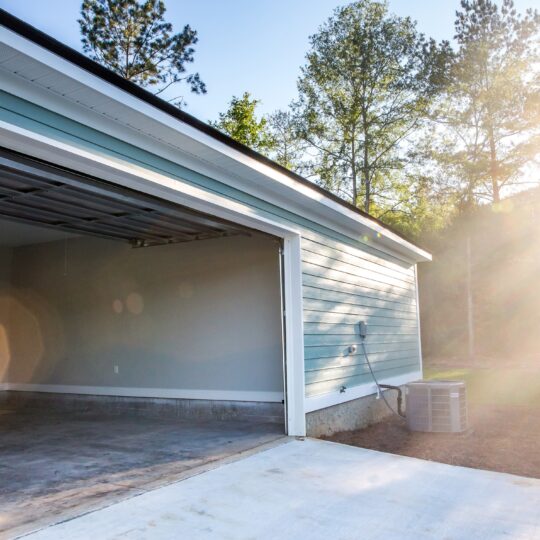From the Garage to Your Home – Why Garage Pest Control is Important

One of the most important parts of keeping pests away is limiting their access to your property. The more openings, the more entrances, and the more places without pest control, the more likely you’re going to find them inside.
Typically, as a pest control company, we leave a barrier of family safe pesticides outside of your home that eliminates pests that try to come inside. But, of course, we can’t stop a fly from coming into an open window, or a spider from waltzing through the top of an open door. If you give a pest access, they can still come inside.
Many people do that unintentionally with their garage. Garages are the largest opening of your home. They are opened every day, and some people leave them open for minutes or even hours at a time, depending on their activity. They are also less likely to have airtight seals, and – unless you have given us access – less likely to have any additional pest treatments inside.
If you have a pest that gets into your garage, then it stands to reason it should easily be able to get into your home. So, if you truly want to be pest free, you need to pay attention to your garage.
Pest Control for Garages – Homeowner Prevention Tips
Garages act as a bridge between the outdoors and the interior of your home, meaning they provide easy access for pests looking for food, moisture, and shelter. Because garages tend to have large openings, minimal insulation, and several small gaps that go unnoticed, they are often the first point of entry for many insects and rodents.
There are several ways that homeowners can reduce pest activity in and around their garage:
- Keep the Garage Clean – Remove clutter, cardboard boxes, and old storage items that create hiding and nesting spaces.
- Seal Gaps and Cracks – Inspect walls, door seals, and any openings near pipes or cables. Use caulk or weather stripping to create tighter barriers.
- Store Food and Pet Supplies Properly – Keep items like bird seed, pet food, or grains sealed in airtight containers. Ideally, don’t put them in the garage at all, as they will attract rodents and other pests to your property.
- Limit Moisture – Check for water leaks or excess humidity. Pests like silverfish, crickets, and roaches thrive in damp areas.
- Manage Trash – Avoid keeping open trash bins inside the garage. They should stay in the house or in the green waste bins. If you absolutely must have garbage cans in the garage, use sealed lids and take out waste frequently.
- Close Doors Promptly – Try not to leave garage doors open longer than necessary, especially at dusk or night when pests are most active.
Even the cleanest garage can attract pests, especially in warmer months or during seasonal changes. Taking these steps can significantly reduce pest activity, but for ongoing prevention, professional treatment offers the most reliable long-term protection.
Professional Pest Control for Garages
A professional pest control service can treat the garage with the same level of protection as the rest of your home. Technicians can apply targeted barrier treatments along garage doors, wall junctions, and foundation edges where pests are most likely to enter. In addition to barrier applications, pest control professionals can identify specific attractants, such as cracks in concrete, standing water, or improperly stored materials that might encourage pest activity.
Comprehensive garage treatments may include:
- Interior and perimeter pesticide application using family-safe, low-odor formulations.
- Rodent exclusion and monitoring using tamper-resistant bait stations.
- Spider web and nest removal from ceilings, corners, and entryways.
- Sealing of visible access points and recommendations for long-term prevention.
Because the garage serves as a transition point between outdoors and indoors, including it in your regular pest control service helps maintain a continuous barrier around your property. With consistent maintenance and professional oversight, garages can remain pest-free and better protected year-round. Contact ExtermPRO if you need help.